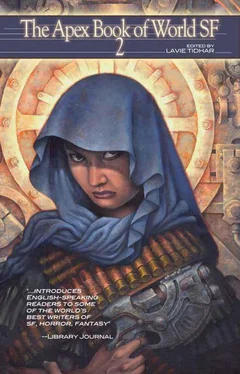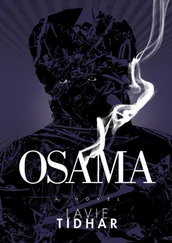Tito Fermin laughed. “All right, all right. You can be Spin-Man. What about your brother?”
By that time, I was foul-tempered and indignant. James had thrown a load of ideas at Tito Fermin, including Spin-Man’s name, his costume, thoughts on potential enemies and even a love interest. My jealousy was frothing at the mouth. I was an artist; a creative; I should have had more ideas than my colourist brother, but my mind was blank. I couldn’t visualise Spin-Man. He was merely a figment, a cipher; I had no story to hang him onto. I struggled to keep my resentment in check, but when you’re nine years old it’s a difficult thing to hide. “No thank you, Tito Fermin. I think I’d rather draw Spin-Man. At least I’ll make money doing it.”
“You can draw it when you’re older. I’ll even ink you, if you’ll have me.” It was a promise that I knew would never be fulfilled. With that, Tito Fermin ruffled my hair and walked off to his room. As he moved away, I caught my little brother staring at me, and this is the face that I will never forget: James biting his lips, his eyes wide open, his expression a mix of guilt and apology, as if he had done something wrong.
That night, before we went to bed, he broached the topic one last time. I had ignored him throughout dinner and he had respected my silence, but after Lolita had tucked us in, he turned to me and asked, “Are you okay?”
“I’m fine,” I said, though obviously I wasn’t.
“You can be Spin-Man if you want. I can just tell Tito Fermin—”
“No thank you,” I said, cutting him off.
And that was that.
I awoke late the next day. The sun was shining, the midday heat had begun to settle in, and my first thought was that I’d somehow overslept and missed Tito Fermin’s leave-taking. My second thought was of James. There was no-one in the next bed, and I assumed that he must have been too bothered about my reaction the previous night to wake me. I put on my slippers and went downstairs. Santa Claus was asleep on his favourite couch, and Lolita was in the next room, sweeping.
“Good morning,” she said. “Your Tito Fermin left early. He didn’t want to wake you because it’s your vacation, but he said that he loves you and that he’ll keep in touch.”
“I’m sorry about that, Lola. Have you seen James?”
“James?” she asked. She seemed puzzled. I rubbed my eyes and thought, She must be going senile in her old age.
“James,” I repeated. “My brother.”
She stopped sweeping and eyed me with suspicion. For a moment, she seemed to be considering what I meant, though it should have been obvious. And then she smiled. “Perhaps when you sleep tonight, you will see him again. Lunch will be ready soon.”
I frowned at her. My grandmother was patronising me. Clearly, some sort of joke was happening that I was unaware of. I left the room and began to look for James. I had searched the living room, the terrace, the dining room and the balcony before I began to wonder if James was playing an impromptu game of hide-and-seek with me. I pursued him through the house. I looked in bathrooms, closets, cabinets and convenient hiding places behind doors, between bookshelves and under beds. It was only when I noticed that his bag was missing; the bag that my mother had packed for him the day before we left for Los Baňos; it was only then that I began to worry.
“James!” I called for him as I ran through the house. “Where’s James?” I yelled at Lolita as she was putting out dishes for lunch. Lolo Doming walked in on us, scratching his head.
“What is he talking about?” he asked. “Who’s James?”
I grew frantic, panicked. “James! My brother! This isn’t funny!” I ran back to our room, looking for the pile of comics he had chosen the day before. There was only one pile. Mine.
“What’s the matter with him?”
“I don’t know.”
I shouted. “I want my brother!”
Lola Lita ran after me. “What happened? What’s wrong?”
“Where did he go?” I ran out of the bedroom and tossed my stack of comics down the stairs. “I want my brother!” I yelled.
Lola Lita bent over the comics. “You have no brother.”
“James!”
My grandfather held me down. “Stop it right now!” he said. I struggled.
“James!”
I screamed. I cried. I went into hysterics. I must have blacked out because the next thing I knew, it was night time. My mother was there, in the bedroom, ready to take me home. “Where’s James?” I asked her. I told her that his bag was gone, and that my grandparents wouldn’t tell me where he was, and how could they not remember my little brother when she had tucked us in the night before?
She carried me and patted my back. “I know, honey, I know. Everything will be fine.”
“I’m not fine,” I sobbed.
“I know.”
One interminable car ride later, I was home. I had secretly hoped that James had somehow got there ahead of us, that by some miracle of time and space, he was sitting on his bed or on his chair, waiting for me to arrive so that he could laugh at me and confess that it was all a joke. But when I entered our room, he wasn’t there. Furthermore, the furniture had been rearranged; there was only one bed set, one chair, one writing desk and a shelf where James’s stuff should have been. Our superhero posters still covered the walls, but apart from that, I could find no trace of my brother.
I thought that I had already cried myself out that day, but as I stood there in our empty room, the tears began to trickle down my cheeks once more. Not tears of confusion or anger, but of grief. As I lay in my bed, my mother sat beside me, stroking my hair. “I don’t know what you’re going through,” she said, “but I want you to know that I’m here for you. Okay?”
She pulled out an envelope from her bag. “Your Tito Fermin left this for you before he went to the airport. I hope you at least had a good time meeting him.”
She left the envelope on my bedside table, kissed me on the forehead, and walked out of the room. “I love you, son. Rest well. I’ll be here when you wake up.”
I didn’t want to sleep that night. I was exhausted, but I couldn’t stand the idea of someone else disappearing while I slept. It occurred to me that I might have entered the Twilight Zone; that this was some horrible subconscious dream; that I would wake up in Los Baňos and James would be there and everything would be as it should have been. My throat felt raw. My eyelids were heavy. But fear got the better of me, and after some time, I sat up in my bed and opened the envelope from Tito Fermin.
My hands shook as I pulled it out. There it was, in crisp, near-mint condition: a signed copy of Spin-Man #1 , written and illustrated by Fermin de la Cruz.
The story opened with a scene featuring a young boy, James Jeronimo, reading a comic book. James was a normal boy, like you or me, who dreamt of becoming a superhero. The caption read: At that precise moment, as James came to terms with his inflexible humanity, he felt an unearthly presence in the room. The planets aligned. In an alternate dimension, a black mass crept over red skies, intent on devouring all life. James’s eyes lit up as a display of coruscating energy erupted from his comic book, pulling him into a cosmic vortex. A wormhole opened up in the centre of the universe, and from its luminous recesses, a blue-and-gold figure emerged—Spin-Man, champion of the multiversal continuum!
Cloudy thought-balloons rose from Spin-Man’s head: Who am I? What is this place? I thought I was a boy reading a comic book, and now I have been summoned—to do what? Then a vision appeared before him—black tendrils blotting out the sun on a world teeming with innocent life. Spin-Man’s eyes narrowed. The Forces of Chaos are threatening the continuum! He activated his cosmic powers, spinning himself from the centre of the universe into an alternate dimension where, with the help of his cosmic abilities, he banished the Forces of Chaos into a black hole.
Читать дальше












